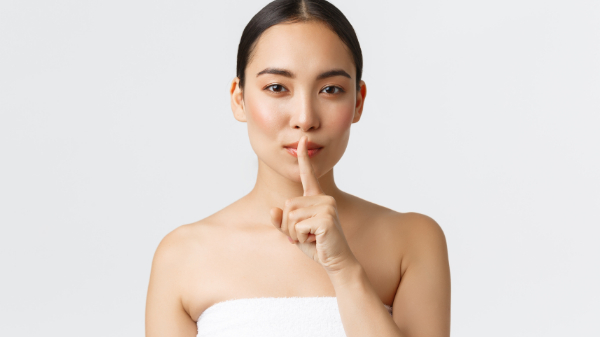The skincare industry has become a multimillion-dollar sector that has earned its global legion of fans for its promises to help people of all ages beat the ravages of time and maintain optimal dermal health. However, there are a few secrets that even the most dedicated of skincare enthusiasts may not have been aware of. From skipping on the day-and-night eye cream ritual to the misleading truth about marketing labels, here are five beauty truths that might just change the way you view skincare…
1. Skip the eye cream
Basically a miniature moisturiser, most eye creams don’t actually contain any special ingredient that specifically benefits the ocular area. Although it doesn’t do any harm, it could be that normal creams could be just as effective…
2. Beware of ‘Hypoallergenic’ and ‘Noncomedogenic’ labels
These are two inaccurate marketing terms that can commonly be found on even the most popular skincare products, despite still containing potentially harmful ingredients such as parabens, sulfates, and chemicals that can irritate the skin and cause free-radical damage.
3. SPF levels in most moisturisers and foundations are not enoughAlthough some moisturisers and foundations claim to offer some SPF protection, they quite often don’t offer sufficient protection against the sun’s harmful UVA and UVB rays for two reasons:
(i) Most of these products don’t contain ingredients that block out UVA, a primary culprint of skin cancer and ageing.
(ii) Because of how thin-textured these creams are, it would take about 15 times more layer to adequately recieve the kind of SPF protection the product claims to provide.
4. Natural is not always the best
There’s no real regulation for terms like organic, natural and vegan that guarantee their quality or that their production processes are sustainable. Besides, certain organic ingredients such as some plant-based essential oils, if not carefully applied, can cause burns and irritations on the skin. ‘All-natural’, on the other hand, is a term that is worth looking out for in products as they are typically more transparent about their biodiversity and are certified organic.
5. Opt for ‘fragrance-free’, not ‘unscented’ products
Fragrance-free means that synthetic fragrance materials or masking scents are not used in the product. On the other hand, unscented generally means that the product may contain chemicals that neutralise or mask the odours of other ingredients, leading to other irritations or allergic reactions.



